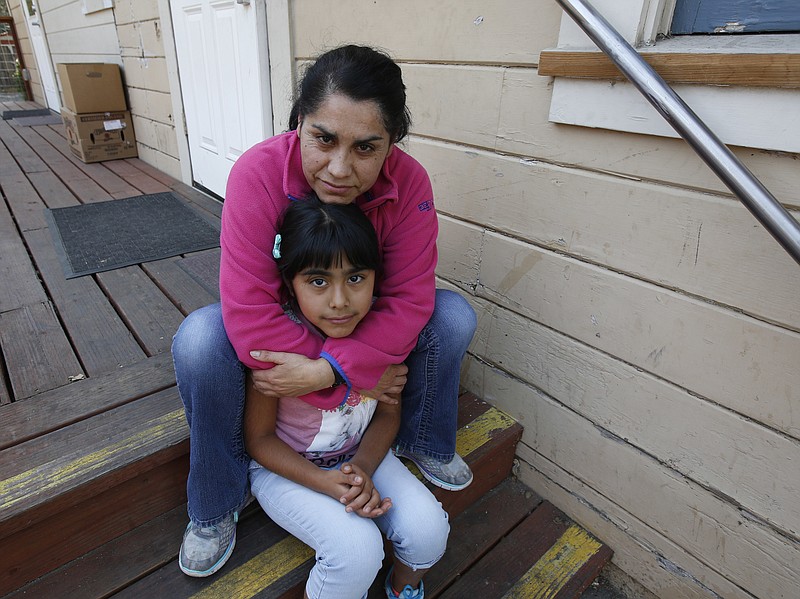SONOMA, Calif. (AP) - When the wildfires ignited, vineyard workers stopped picking grapes and fled for their lives. Some vineyard owners decided to stay and fight back, spending days digging firebreaks and sleeping among their vines for safety.
As the danger drew closer, grape pickers spread word of the threat and helped neighbors pack their homes. The owner of an elite golf resort abandoned his home to try to save his golf course.
The deadliest and most destructive wildfires in California history imperiled both the low-wage workers who harvest the nation's most valuable wine grapes and the wealthy entrepreneurs who employ them. Vintners were suddenly plunged into the same desperate struggle as their laborers, with everyone fighting to preserve the things most precious to them - families, belongings and businesses.
On the public beach campgrounds where hundreds of evacuees escaped the flames, the affluent slept alongside migrant workers and combed through donated supplies.
"We had people in Mercedes and Lexuses showing up" with soot on their faces after losing everything, said Patty Ginochio, a volunteer who helped feed, house and clothe evacuees. Even some of the well-off "had nothing but the clothes on their back. It's humbling."
If anything, the fires seemed to target the affluent, blackening leafy suburban developments and hilltop estates more than the flatlands where many farm workers and middle-class families live.
Winery owners with multiple houses will take vastly different roads to recovery than the grape pickers who lost the only rental home they could hope to afford. But for a short time, fire was the great leveler in a region where the wealthiest 1 percent of people makes 20 times more than the rest.
Everybody thinks the winery owners are "rich guys and rich families, and they're above everything," said Adam Mariani, a fourth-generation farmer whose family runs the Scribe Winery in Sonoma. "But the truth is people are completely bootstrapping here" and worried about the effect of the fires on their livelihood.
The harvest was winding down Oct. 8 as Gonzalo Jauregui worked an overnight grape-picking shift intended to protect workers and the fruit from the heat of the day. Around 10 p.m., a gale blew into the vineyard outside of Sonoma with a strength the 45-year-old had never seen before.
"We saw the power lines bouncing against each other and trees losing their branches and sparks flying," Jauregui recalled. The grape harvesters ran to their cars.
Dozens of other blazes were erupting at the same time across wine country, and Jauregui "could see the fire coming down the mountain."
At the Scribe Winery, the winds disrupted a dinner among the vines, upending table settings. Diners who hoped to linger over their meals were driven inside. Kelly Mariani, one of the family members there, recalled the ominous rattle of rattlesnakes in dry grass as the wind rose.
By midnight, flames had burned a neighbor's home and were creeping down an oak ridge toward the winery buildings and family homes.
"There were hurricane winds. The house was rattling. The dog was barking," said Adam Mariani, whose family has worked for a decade to rebuild the winery, which was eradicated during Prohibition and turned into a turkey farm.

